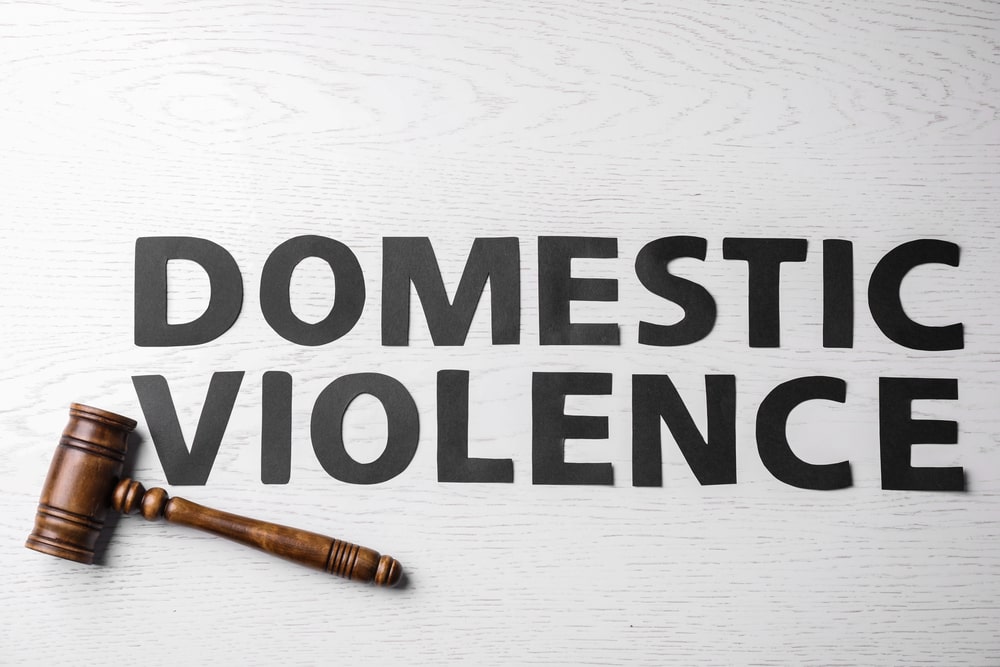Guardianship Lawyers in Los Angeles
 Guardianship issues often arise during difficult times in the life of your family and loved ones. The compassionate and experienced guardianship attorneys at The Sands Law Group, APLC can help. We work hard to provide effective and affordable legal solutions tailored to your circumstances and budget.
Guardianship issues often arise during difficult times in the life of your family and loved ones. The compassionate and experienced guardianship attorneys at The Sands Law Group, APLC can help. We work hard to provide effective and affordable legal solutions tailored to your circumstances and budget.
Offering legal services in English, French, Hebrew, Arabic and Spanish, we have successfully assisted countless clients with guardianship issues across the Pacific Southwest region.
How is Guardianship Defined in California?
Guardianship exists to protect the interests of a minor child when the parents are unable or unwilling to care for the child. A court appoints a guardian to have custody of the child, and/or to manage the child’s property.
While guardianship does not supersede parental rights, the guardian can make legal and medical decisions for the child and has the same responsibilities to care for the child as a parent would, including:
- Providing food, clothing and shelter;
- Ensuring the child’s safety;
- Supporting the child’s physical and emotional development;
- Ensuring access to appropriate medical and dental care;
- Providing for the child’s education; and
- Providing for any other special needs of the child.
If a child owns valuable assets, usually due to an inheritance of money or property, the guardianship can include the authority to manage the property while the child is a minor. When this authority is granted separately from the guardianship, it is known as a conservatorship. Our experienced guardianship attorneys can help you determine whether a child requires a conservatorship of his or her estate.
A guardianship is not the same as an adoption. Under a guardianship, the parental rights are not terminated, and the parents can request to spend time with the child. The court may supervise the guardianships (for example, by requiring periodic reporting) and may revoke the guardianship (for example, if the parent(s) become able to care for the children). An adoption terminates previous parental rights, and the adoptive parents are permanently given all the same rights as birth parents, including inheritance rights. The court’s involvement ends at the time of the adoption.
Guardianships may be appropriate for people other than minor children, such as for adults who are incapacitated or involved in certain juvenile court or immigration matters. The Sands Law Group, APLC has helped countless clients facing many different circumstances obtain legal guardianship. Our compassionate guardianship attorneys will work hard to tailor an approach to your specific needs and budget.
Helping Clients Obtain Legal Guardianship in Los Angeles
Becoming a guardian requires the filing of a petition and other forms with the court, notification to relatives and potentially other persons and agencies, and a hearing. The court may also direct an investigator to conduct interviews and provide a report with recommendations. Even minor errors or omissions at any step of the guardianship process can result in significant delays.
Notification requirements are complex and vary by state, but in general, notice must be served in person or by mail to the minor child (depending on age), the parents and all grandparents. Notice to other relatives (e.g. siblings and half-siblings), non-relatives (current custodians or guardians), or state agencies and other interested parties may also be required. Each state has explicit rules for the process of notification and requirements in the event someone cannot be located.
A guardianship may be granted with or without parental consent. As with all child custody matters, the judge will make a decision based on the best interests of the child. Where the parents consent to the guardianship, a hearing may be shorter and less contentious, and the judge will typically appoint the guardian if it is necessary and appropriate. Where the parents do not consent to the guardianship, the court may require more information and evidence, and the judge will consider whether staying with the parent(s) is detrimental to the child and whether the guardianship is in the child’s best interest.
What is the Difference Between Guardianship and Adoption in California?
A guardianship is a legal relationship where a non-parent is appointed by the court to take care of a child’s well-being and make decisions regarding their upbringing. It is typically established when the child’s parents are unable to provide proper care due to various reasons such as illness, substance abuse, or incarceration. Guardianships are often temporary and can be terminated when the parents are capable of resuming their parental duties. The biological parents may retain certain rights, such as visitation or contact with the child. While the guardian assumes responsibility for the child’s day-to-day needs, they do not have the same legal rights and obligations as biological parents. The guardian is appointed by the court and must report to the court periodically on the child’s welfare.
On the other hand, adoption is a permanent legal process where the rights and responsibilities of the biological parents are permanently terminated, and the child becomes a legal member of the adoptive family. Adoption severs all legal ties between the child and their biological parents, granting the adoptive parents the same rights and obligations as if the child were born to them. The adoptive parents become the child’s legal parents, and the child typically takes their last name. Adoptive parents have the authority to make all major decisions regarding the child’s upbringing, including medical care, education, and religion. Adoption is considered a permanent legal arrangement, and once finalized, it is challenging to reverse or terminate the adoption process.
In summary, a guardianship is a temporary arrangement where a non-parent assumes responsibility for a child’s care and decision-making, while the biological parents retain certain rights. Adoption, on the other hand, is a permanent legal process where the adoptive parents become the child’s legal parents, and the biological parents’ rights are permanently terminated. Both guardianship and adoption serve to provide care and stability for children in need, but they differ in their legal status and permanence. It is crucial to consult with a family law attorney in Los Angeles, California, to understand the specific requirements and implications of each process in your particular situation.
Benefits of Hiring a Guardianship Lawyer
The knowledgeable guardianship lawyers at The Sands Law Group, APLC are here to offer you compassionate legal representation through all steps of the process. We pride ourselves on providing the effectiveness and experience of a large firm but with the personal attention and affordability of a smaller firm and can tailor our services to meet your budget.
The assistance of a guardianship attorney in your initial petition can help you avoid the potentially significant delays caused by errors or omissions in your forms. We can also help you understand and fulfill the complex notification requirements. Legal representation can be particularly important in helping you present your case at the hearing, particularly if the parents do not consent to the guardianship.
Occasionally, guardianship issues arise in the context of other family or domestic disputes and legal issues. Our caring family law attorneys understand the sensitive nature of these situations and can provide comprehensive legal services, tailored to your circumstances.
Frequently Asked Questions
What kind of attorney handles guardianships?
Experienced family law attorneys who specialize in guardianships will typically provide the most efficient and effective service. The Sands Law Group, APLC, handles all aspects of family law and has successfully petitioned for guardianship for countless clients across the Pacific Southwest region.
What is the difference between guardianship and custody of a minor child?
A guardian is someone other than the biological parents who has the authority to make physical and legal decisions for the child. Custody can only be granted to the child’s biological parents and involves other determinations by the court as to the parent’s decision-making responsibility and time spent with the child.
Who can be appointed as a Guardian?
Anyone who is not a biological parent of a child can become a guardian. However, the preference of the court is that children remain with their parents, and anyone petitioning to become a guardian must meet a very high burden in showing that it is in the child’s best interest.
Contact Our Compassionate Legal Guardianship Attorneys
At The Sands Law Group, APLC we pride ourselves on putting the client first. Our highly skilled, compassionate attorneys value our relationships with our clients and strive to provide effective, affordable, and transparent legal services. We look forward to helping you navigate the guardianship process so that you can focus on caring for your loved ones. Contact our Los Angeles, California office today for a confidential consultation.
CALL 213-788-4412









